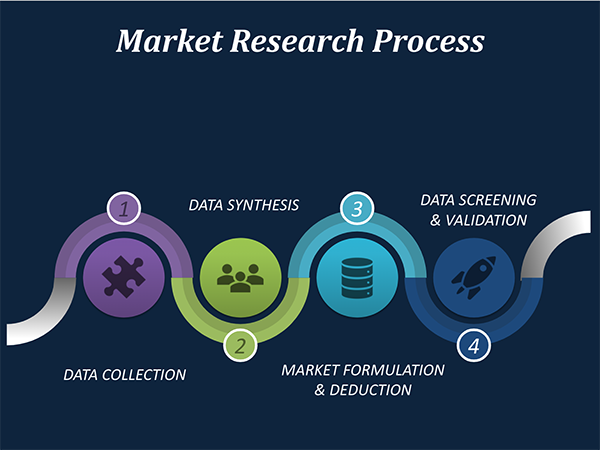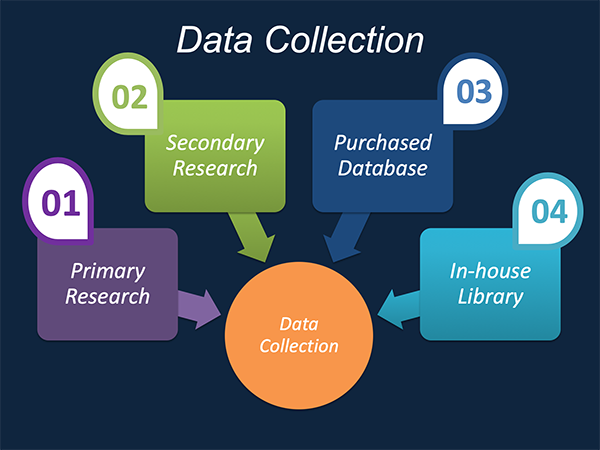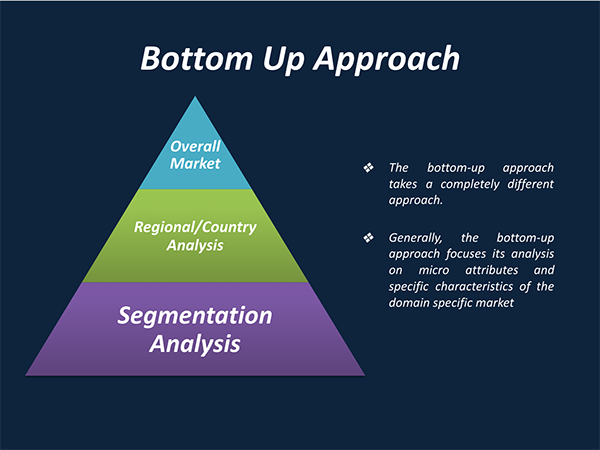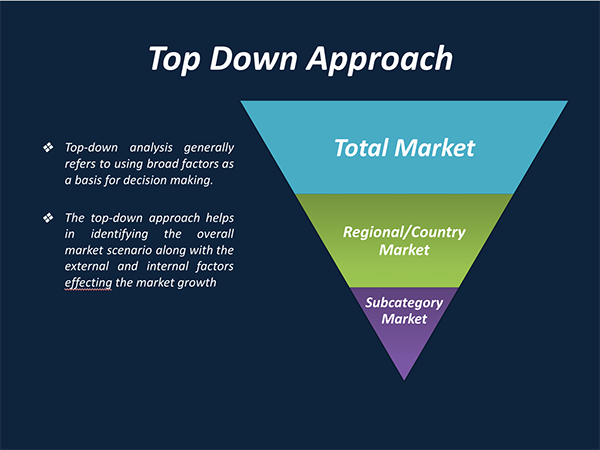Description
Scope of the Report:
The global Virtual Machines (VM) market is valued at 3523.4 million USD in 2018 and is expected to reach 3934.1 million USD by the end of 2024, growing at a CAGR of 2.8% between 2019 and 2024.
The Asia-Pacific will occupy for more market share in following years, especially in China, also fast growing India and Southeast Asia regions.
North America, especially The United States, will still play an important role which cannot be ignored. Any changes from United States might affect the development trend of Virtual Machines (VM).
Europe also play important roles in global market, with market size of xx million USD in 2019 and will be xx million USD in 2024, with a CAGR of xx%.
This report studies the Virtual Machines (VM) market status and outlook of Global and major regions, from angles of players, countries, product types and end industries; this report analyzes the top players in global market, and splits the Virtual Machines (VM) market by product type and applications/end industries.
Market Segment by Companies, this report covers
VMware
H3C
Hewlett Packard Enterprise
IBM
Microsoft
Huawei
Inspur
Citrix
Oracle
Red Hat
Easted
Winhong
Market Segment by Regions, regional analysis covers
North America (United States, Canada and Mexico)
Europe (Germany, France, UK, Russia and Italy)
Asia-Pacific (China, Japan, Korea, India and Southeast Asia)
South America (Brazil, Argentina, Colombia)
Middle East and Africa (Saudi Arabia, UAE, Egypt, Nigeria and South Africa)
Market Segment by Type, covers
System Virtual Machines
Process Virtual Machines
System virtual machines holds a comparatively larger share in global market, which accounts for about 87%.
Market Segment by Applications, can be divided into
Small Scale Enterprises
Medium Scale Enterprises
Large Scale Enterprises
The medium scale enterprises holds an important share in terms of applications, and accounts for 61% of the market share.
Table of Contents
1 Virtual Machines (VM) Market Overview
1.1 Product Overview and Scope of Virtual Machines (VM)
1.2 Classification of Virtual Machines (VM) by Types
1.2.1 Global Virtual Machines (VM) Revenue Comparison by Types (2019-2024)
1.2.2 Global Virtual Machines (VM) Revenue Market Share by Types in 2018
1.2.3 System Virtual Machines
1.2.4 Process Virtual Machines
1.3 Global Virtual Machines (VM) Market by Application
1.3.1 Global Virtual Machines (VM) Market Size and Market Share Comparison by Applications (2014-2024)
1.3.2 Small Scale Enterprises
1.3.3 Medium Scale Enterprises
1.3.4 Large Scale Enterprises
1.4 Global Virtual Machines (VM) Market by Regions
1.4.1 Global Virtual Machines (VM) Market Size (Million USD) Comparison by Regions (2014-2024)
1.4.1 North America (USA, Canada and Mexico) Virtual Machines (VM) Status and Prospect (2014-2024)
1.4.2 Europe (Germany, France, UK, Russia and Italy) Virtual Machines (VM) Status and Prospect (2014-2024)
1.4.3 Asia-Pacific (China, Japan, Korea, India and Southeast Asia) Virtual Machines (VM) Status and Prospect (2014-2024)
1.4.4 South America (Brazil, Argentina, Colombia) Virtual Machines (VM) Status and Prospect (2014-2024)
1.4.5 Middle East and Africa (Saudi Arabia, UAE, Egypt, Nigeria and South Africa) Virtual Machines (VM) Status and Prospect (2014-2024)
1.5 Global Market Size of Virtual Machines (VM) (2014-2024)
2 Company Profiles
2.1 VMware
2.1.1 Business Overview
2.1.2 Virtual Machines (VM) Type and Applications
2.1.2.1 Product A
2.1.2.2 Product B
2.1.3 VMware Virtual Machines (VM) Revenue, Gross Margin and Market Share (2017-2018)
2.2 H3C
2.2.1 Business Overview
2.2.2 Virtual Machines (VM) Type and Applications
2.2.2.1 Product A
2.2.2.2 Product B
2.2.3 H3C Virtual Machines (VM) Revenue, Gross Margin and Market Share (2017-2018)
2.3 Hewlett Packard Enterprise
2.3.1 Business Overview
2.3.2 Virtual Machines (VM) Type and Applications
2.3.2.1 Product A
2.3.2.2 Product B
2.3.3 Hewlett Packard Enterprise Virtual Machines (VM) Revenue, Gross Margin and Market Share (2017-2018)
2.4 IBM
2.4.1 Business Overview
2.4.2 Virtual Machines (VM) Type and Applications
2.4.2.1 Product A
2.4.2.2 Product B
2.4.3 IBM Virtual Machines (VM) Revenue, Gross Margin and Market Share (2017-2018)
2.5 Microsoft
2.5.1 Business Overview
2.5.2 Virtual Machines (VM) Type and Applications
2.5.2.1 Product A
2.5.2.2 Product B
2.5.3 Microsoft Virtual Machines (VM) Revenue, Gross Margin and Market Share (2017-2018)
2.6 Huawei
2.6.1 Business Overview
2.6.2 Virtual Machines (VM) Type and Applications
2.6.2.1 Product A
2.6.2.2 Product B
2.6.3 Huawei Virtual Machines (VM) Revenue, Gross Margin and Market Share (2017-2018)
2.7 Inspur
2.7.1 Business Overview
2.7.2 Virtual Machines (VM) Type and Applications
2.7.2.1 Product A
2.7.2.2 Product B
2.7.3 Inspur Virtual Machines (VM) Revenue, Gross Margin and Market Share (2017-2018)
2.8 Citrix
2.8.1 Business Overview
2.8.2 Virtual Machines (VM) Type and Applications
2.8.2.1 Product A
2.8.2.2 Product B
2.8.3 Citrix Virtual Machines (VM) Revenue, Gross Margin and Market Share (2017-2018)
2.9 Oracle
2.9.1 Business Overview
2.9.2 Virtual Machines (VM) Type and Applications
2.9.2.1 Product A
2.9.2.2 Product B
2.9.3 Oracle Virtual Machines (VM) Revenue, Gross Margin and Market Share (2017-2018)
2.10 Red Hat
2.10.1 Business Overview
2.10.2 Virtual Machines (VM) Type and Applications
2.10.2.1 Product A
2.10.2.2 Product B
2.10.3 Red Hat Virtual Machines (VM) Revenue, Gross Margin and Market Share (2017-2018)
2.11 Easted
2.11.1 Business Overview
2.11.2 Virtual Machines (VM) Type and Applications
2.11.2.1 Product A
2.11.2.2 Product B
2.11.3 Easted Virtual Machines (VM) Revenue, Gross Margin and Market Share (2017-2018)
2.12 Winhong
2.12.1 Business Overview
2.12.2 Virtual Machines (VM) Type and Applications
2.12.2.1 Product A
2.12.2.2 Product B
2.12.3 Winhong Virtual Machines (VM) Revenue, Gross Margin and Market Share (2017-2018)
3 Global Virtual Machines (VM) Market Competition, by Players
3.1 Global Virtual Machines (VM) Revenue and Share by Players (2014-2019)
3.2 Market Concentration Rate
3.2.1 Top 5 Virtual Machines (VM) Players Market Share
3.2.2 Top 10 Virtual Machines (VM) Players Market Share
3.3 Market Competition Trend
4 Global Virtual Machines (VM) Market Size by Regions
4.1 Global Virtual Machines (VM) Revenue and Market Share by Regions
4.2 North America Virtual Machines (VM) Revenue and Growth Rate (2014-2019)
4.3 Europe Virtual Machines (VM) Revenue and Growth Rate (2014-2019)
4.4 Asia-Pacific Virtual Machines (VM) Revenue and Growth Rate (2014-2019)
4.5 South America Virtual Machines (VM) Revenue and Growth Rate (2014-2019)
4.6 Middle East and Africa Virtual Machines (VM) Revenue and Growth Rate (2014-2019)
5 North America Virtual Machines (VM) Revenue by Countries
5.1 North America Virtual Machines (VM) Revenue by Countries (2014-2019)
5.2 USA Virtual Machines (VM) Revenue and Growth Rate (2014-2019)
5.3 Canada Virtual Machines (VM) Revenue and Growth Rate (2014-2019)
5.4 Mexico Virtual Machines (VM) Revenue and Growth Rate (2014-2019)
6 Europe Virtual Machines (VM) Revenue by Countries
6.1 Europe Virtual Machines (VM) Revenue by Countries (2014-2019)
6.2 Germany Virtual Machines (VM) Revenue and Growth Rate (2014-2019)
6.3 UK Virtual Machines (VM) Revenue and Growth Rate (2014-2019)
6.4 France Virtual Machines (VM) Revenue and Growth Rate (2014-2019)
6.5 Russia Virtual Machines (VM) Revenue and Growth Rate (2014-2019)
6.6 Italy Virtual Machines (VM) Revenue and Growth Rate (2014-2019)
7 Asia-Pacific Virtual Machines (VM) Revenue by Countries
7.1 Asia-Pacific Virtual Machines (VM) Revenue by Countries (2014-2019)
7.2 China Virtual Machines (VM) Revenue and Growth Rate (2014-2019)
7.3 Japan Virtual Machines (VM) Revenue and Growth Rate (2014-2019)
7.4 Korea Virtual Machines (VM) Revenue and Growth Rate (2014-2019)
7.5 India Virtual Machines (VM) Revenue and Growth Rate (2014-2019)
7.6 Southeast Asia Virtual Machines (VM) Revenue and Growth Rate (2014-2019)
8 South America Virtual Machines (VM) Revenue by Countries
8.1 South America Virtual Machines (VM) Revenue by Countries (2014-2019)
8.2 Brazil Virtual Machines (VM) Revenue and Growth Rate (2014-2019)
8.3 Argentina Virtual Machines (VM) Revenue and Growth Rate (2014-2019)
8.4 Colombia Virtual Machines (VM) Revenue and Growth Rate (2014-2019)
9 Middle East and Africa Revenue Virtual Machines (VM) by Countries
9.1 Middle East and Africa Virtual Machines (VM) Revenue by Countries (2014-2019)
9.2 Saudi Arabia Virtual Machines (VM) Revenue and Growth Rate (2014-2019)
9.3 UAE Virtual Machines (VM) Revenue and Growth Rate (2014-2019)
9.4 Egypt Virtual Machines (VM) Revenue and Growth Rate (2014-2019)
9.5 Nigeria Virtual Machines (VM) Revenue and Growth Rate (2014-2019)
9.6 South Africa Virtual Machines (VM) Revenue and Growth Rate (2014-2019)
10 Global Virtual Machines (VM) Market Segment by Type
10.1 Global Virtual Machines (VM) Revenue and Market Share by Type (2014-2019)
10.2 Global Virtual Machines (VM) Market Forecast by Type (2019-2024)
10.3 System Virtual Machines Revenue Growth Rate (2014-2024)
10.4 Process Virtual Machines Revenue Growth Rate (2014-2024)
11 Global Virtual Machines (VM) Market Segment by Application
11.1 Global Virtual Machines (VM) Revenue Market Share by Application (2014-2019)
11.2 Virtual Machines (VM) Market Forecast by Application (2019-2024)
11.3 Small Scale Enterprises Revenue Growth (2014-2019)
11.4 Medium Scale Enterprises Revenue Growth (2014-2019)
11.5 Large Scale Enterprises Revenue Growth (2014-2019)
12 Global Virtual Machines (VM) Market Size Forecast (2019-2024)
12.1 Global Virtual Machines (VM) Market Size Forecast (2019-2024)
12.2 Global Virtual Machines (VM) Market Forecast by Regions (2019-2024)
12.3 North America Virtual Machines (VM) Revenue Market Forecast (2019-2024)
12.4 Europe Virtual Machines (VM) Revenue Market Forecast (2019-2024)
12.5 Asia-Pacific Virtual Machines (VM) Revenue Market Forecast (2019-2024)
12.6 South America Virtual Machines (VM) Revenue Market Forecast (2019-2024)
12.7 Middle East and Africa Virtual Machines (VM) Revenue Market Forecast (2019-2024)
13 Research Findings and Conclusion
14 Appendix
14.1 Methodology
14.2 Data Source
List of Tables and Figures
Figure Virtual Machines (VM) Picture
Table Product Specifications of Virtual Machines (VM)
Table Global Virtual Machines (VM) and Revenue (Million USD) Market Split by Product Type
Figure Global Virtual Machines (VM) Revenue Market Share by Types in 2018
Figure System Virtual Machines Picture
Figure Process Virtual Machines Picture
Table Global Virtual Machines (VM) Revenue (Million USD) by Application (2014-2024)
Figure Virtual Machines (VM) Revenue Market Share by Applications in 2018
Figure Small Scale Enterprises Picture
Figure Medium Scale Enterprises Picture
Figure Large Scale Enterprises Picture
Table Global Market Virtual Machines (VM) Revenue (Million USD) Comparison by Regions 2014-2024
Figure North America Virtual Machines (VM) Revenue (Million USD) and Growth Rate (2014-2024)
Figure Europe Virtual Machines (VM) Revenue (Million USD) and Growth Rate (2014-2024)
Figure Asia-Pacific Virtual Machines (VM) Revenue (Million USD) and Growth Rate (2014-2024)
Figure South America Virtual Machines (VM) Revenue (Million USD) and Growth Rate (2014-2024)
Figure Middle East and Africa Virtual Machines (VM) Revenue (Million USD) and Growth Rate (2014-2024)
Figure Global Virtual Machines (VM) Revenue (Million USD) and Growth Rate (2014-2024)
Table VMware Basic Information, Manufacturing Base and Competitors
Table VMware Virtual Machines (VM) Type and Applications
Table VMware Virtual Machines (VM) Revenue, Gross Margin and Market Share (2017-2018)
Table H3C Basic Information, Manufacturing Base and Competitors
Table H3C Virtual Machines (VM) Type and Applications
Table H3C Virtual Machines (VM) Revenue, Gross Margin and Market Share (2017-2018)
Table Hewlett Packard Enterprise Basic Information, Manufacturing Base and Competitors
Table Hewlett Packard Enterprise Virtual Machines (VM) Type and Applications
Table Hewlett Packard Enterprise Virtual Machines (VM) Revenue, Gross Margin and Market Share (2017-2018)
Table IBM Basic Information, Manufacturing Base and Competitors
Table IBM Virtual Machines (VM) Type and Applications
Table IBM Virtual Machines (VM) Revenue, Gross Margin and Market Share (2017-2018)
Table Microsoft Basic Information, Manufacturing Base and Competitors
Table Microsoft Virtual Machines (VM) Type and Applications
Table Microsoft Virtual Machines (VM) Revenue, Gross Margin and Market Share (2017-2018)
Table Huawei Basic Information, Manufacturing Base and Competitors
Table Huawei Virtual Machines (VM) Type and Applications
Table Huawei Virtual Machines (VM) Revenue, Gross Margin and Market Share (2017-2018)
Table Inspur Basic Information, Manufacturing Base and Competitors
Table Inspur Virtual Machines (VM) Type and Applications
Table Inspur Virtual Machines (VM) Revenue, Gross Margin and Market Share (2017-2018)
Table Citrix Basic Information, Manufacturing Base and Competitors
Table Citrix Virtual Machines (VM) Type and Applications
Table Citrix Virtual Machines (VM) Revenue, Gross Margin and Market Share (2017-2018)
Table Oracle Basic Information, Manufacturing Base and Competitors
Table Oracle Virtual Machines (VM) Type and Applications
Table Oracle Virtual Machines (VM) Revenue, Gross Margin and Market Share (2017-2018)
Table Red Hat Basic Information, Manufacturing Base and Competitors
Table Red Hat Virtual Machines (VM) Type and Applications
Table Red Hat Virtual Machines (VM) Revenue, Gross Margin and Market Share (2017-2018)
Table Easted Basic Information, Manufacturing Base and Competitors
Table Easted Virtual Machines (VM) Type and Applications
Table Easted Virtual Machines (VM) Revenue, Gross Margin and Market Share (2017-2018)
Table Winhong Basic Information, Manufacturing Base and Competitors
Table Winhong Virtual Machines (VM) Type and Applications
Table Winhong Virtual Machines (VM) Revenue, Gross Margin and Market Share (2017-2018)
Table Global Virtual Machines (VM) Revenue (Million USD) by Players (2014-2019)
Table Global Virtual Machines (VM) Revenue Share by Players (2014-2019)
Figure Global Virtual Machines (VM) Revenue Share by Players in 2017
Figure Global Virtual Machines (VM) Revenue Share by Players in 2018
Figure Global Top 5 Players Virtual Machines (VM) Revenue Market Share in 2018
Figure Global Top 10 Players Virtual Machines (VM) Revenue Market Share in 2018
Figure Global Virtual Machines (VM) Revenue (Million USD) and Growth Rate (%) (2014-2019)
Table Global Virtual Machines (VM) Revenue (Million USD) by Regions (2014-2019)
Table Global Virtual Machines (VM) Revenue Market Share by Regions (2014-2019)
Figure Global Virtual Machines (VM) Revenue Market Share by Regions (2014-2019)
Figure Global Virtual Machines (VM) Revenue Market Share by Regions in 2018
Figure North America Virtual Machines (VM) Revenue and Growth Rate (2014-2019)
Figure Europe Virtual Machines (VM) Revenue and Growth Rate (2014-2019)
Figure Asia-Pacific Virtual Machines (VM) Revenue and Growth Rate (2014-2019)
Figure South America Virtual Machines (VM) Revenue and Growth Rate (2014-2019)
Figure Middle East and Africa Virtual Machines (VM) Revenue and Growth Rate (2014-2019)
Table North America Virtual Machines (VM) Revenue by Countries (2014-2019)
Table North America Virtual Machines (VM) Revenue Market Share by Countries (2014-2019)
Figure North America Virtual Machines (VM) Revenue Market Share by Countries (2014-2019)
Figure North America Virtual Machines (VM) Revenue Market Share by Countries in 2018
Figure USA Virtual Machines (VM) Revenue and Growth Rate (2014-2019)
Figure Canada Virtual Machines (VM) Revenue and Growth Rate (2014-2019)
Figure Mexico Virtual Machines (VM) Revenue and Growth Rate (2014-2019)
Table Europe Virtual Machines (VM) Revenue (Million USD) by Countries (2014-2019)
Figure Europe Virtual Machines (VM) Revenue Market Share by Countries (2014-2019)
Figure Europe Virtual Machines (VM) Revenue Market Share by Countries in 2018
Figure Germany Virtual Machines (VM) Revenue and Growth Rate (2014-2019)
Figure UK Virtual Machines (VM) Revenue and Growth Rate (2014-2019)
Figure France Virtual Machines (VM) Revenue and Growth Rate (2014-2019)
Figure Russia Virtual Machines (VM) Revenue and Growth Rate (2014-2019)
Figure Italy Virtual Machines (VM) Revenue and Growth Rate (2014-2019)
Table Asia-Pacific Virtual Machines (VM) Revenue (Million USD) by Countries (2014-2019)
Figure Asia-Pacific Virtual Machines (VM) Revenue Market Share by Countries (2014-2019)
Figure Asia-Pacific Virtual Machines (VM) Revenue Market Share by Countries in 2018
Figure China Virtual Machines (VM) Revenue and Growth Rate (2014-2019)
Figure Japan Virtual Machines (VM) Revenue and Growth Rate (2014-2019)
Figure Korea Virtual Machines (VM) Revenue and Growth Rate (2014-2019)
Figure India Virtual Machines (VM) Revenue and Growth Rate (2014-2019)
Figure Southeast Asia Virtual Machines (VM) Revenue and Growth Rate (2014-2019)
Table South America Virtual Machines (VM) Revenue by Countries (2014-2019)
Table South America Virtual Machines (VM) Revenue Market Share by Countries (2014-2019)
Figure South America Virtual Machines (VM) Revenue Market Share by Countries (2014-2019)
Figure South America Virtual Machines (VM) Revenue Market Share by Countries in 2018
Figure Brazil Virtual Machines (VM) Revenue and Growth Rate (2014-2019)
Figure Argentina Virtual Machines (VM) Revenue and Growth Rate (2014-2019)
Figure Colombia Virtual Machines (VM) Revenue and Growth Rate (2014-2019)
Table Middle East and Africa Virtual Machines (VM) Revenue (Million USD) by Countries (2014-2019)
Table Middle East and Africa Virtual Machines (VM) Revenue Market Share by Countries (2014-2019)
Figure Middle East and Africa Virtual Machines (VM) Revenue Market Share by Countries (2014-2019)
Figure Middle East and Africa Virtual Machines (VM) Revenue Market Share by Countries in 2018
Figure Saudi Arabia Virtual Machines (VM) Revenue and Growth Rate (2014-2019)
Figure UAE Virtual Machines (VM) Revenue and Growth Rate (2014-2019)
Figure Egypt Virtual Machines (VM) Revenue and Growth Rate (2014-2019)
Figure Nigeria Virtual Machines (VM) Revenue and Growth Rate (2014-2019)
Figure South Africa Virtual Machines (VM) Revenue and Growth Rate (2014-2019)
Table Global Virtual Machines (VM) Revenue (Million USD) by Type (2014-2019)
Table Global Virtual Machines (VM) Revenue Share by Type (2014-2019)
Figure Global Virtual Machines (VM) Revenue Share by Type (2014-2019)
Figure Global Virtual Machines (VM) Revenue Share by Type in 2018
Table Global Virtual Machines (VM) Revenue Forecast by Type (2019-2024)
Figure Global Virtual Machines (VM) Market Share Forecast by Type (2019-2024)
Figure Global System Virtual Machines Revenue Growth Rate (2014-2019)
Figure Global Process Virtual Machines Revenue Growth Rate (2014-2019)
Table Global Virtual Machines (VM) Revenue by Application (2014-2019)
Table Global Virtual Machines (VM) Revenue Share by Application (2014-2019)
Figure Global Virtual Machines (VM) Revenue Share by Application (2014-2019)
Figure Global Virtual Machines (VM) Revenue Share by Application in 2018
Table Global Virtual Machines (VM) Revenue Forecast by Application (2019-2024)
Figure Global Virtual Machines (VM) Market Share Forecast by Application (2019-2024)
Figure Global Small Scale Enterprises Revenue Growth Rate (2014-2019)
Figure Global Medium Scale Enterprises Revenue Growth Rate (2014-2019)
Figure Global Large Scale Enterprises Revenue Growth Rate (2014-2019)
Figure Global Virtual Machines (VM) Revenue (Million USD) and Growth Rate Forecast (2019-2024)
Table Global Virtual Machines (VM) Revenue (Million USD) Forecast by Regions (2019-2024)
Figure Global Virtual Machines (VM) Revenue Market Share Forecast by Regions (2019-2024)
Figure North America Virtual Machines (VM) Revenue Market Forecast (2019-2024)
Figure Europe Virtual Machines (VM) Revenue Market Forecast (2019-2024)
Figure Asia-Pacific Virtual Machines (VM) Revenue Market Forecast (2019-2024)
Figure South America Virtual Machines (VM) Revenue Market Forecast (2019-2024)
Figure Middle East and Africa Virtual Machines (VM) Revenue Market Forecast (2019-2024)
Market research is a method of gathering, assessing and deducing data & information about a particular market. Market research is very crucial in these days. The techniques analyze about how a product/service can be offered to the market to its end-customers, observe the impact of that product/service based on the past customer experiences, and cater their needs and demands. Owing to the successful business ventures, accurate, relevant and thorough information is the base for all the organizations because market research report/study offers specific market related data & information about the industry growth prospects, perspective of the existing customers, and the overall market scenario prevailed in past, ongoing present and developing future. It allows the stakeholders and investors to determine the probability of a business before committing substantial resources to the venture. Market research helps in solving the marketing issues challenges that a business will most likely face.
Market research is valuable because of the following reasons:
Our research report features both the aspects; qualitative and quantitative. Qualitative part provides insights about the market driving forces, potential opportunities, customer’s demands and requirement which in turn help the companies to come up with new strategies in order to survive in the long run competition. The quantitative segment offers the most credible information related to the industry. Based on the data gathering, we use to derive the market size and estimate their future growth prospects on the basis of global, region and country.
Our market research process involves with the four specific stages.

Data Collection: This stage of the market research process involves with the gathering and collecting of the market/industry related data from the sources. There are basically two types of research methods:

Data Synthesis: This stage includes the evaluation and assessment of all the data acquired from the primary and secondary research. It likewise includes in evaluating the information for any disparity watched while information gathering identified with the market. The data & information is gathered with consideration to the heterogeneity of sources. Scientific and statistical methods are implemented for synthesizing dissimilar information sets and provide the relevant data which is fundamental for formulating strategies. Our organization has broad involvement with information amalgamation where the information goes through different stages:


Market Formulation & Deduction: The last stage includes assigning the data & information in a suitable way in order to derive market size. Analyst reviews and domain based opinions based on holistic approach of market estimation combined with industry investigation additionally features a crucial role in this stage.
This stage includes with the finalization of the market size and numbers that we have gathered from primary and secondary research. With the data & information addition, we ensure that there is no gap in the market information. Market trend analysis is finished by our analysts by utilizing data extrapolation procedures, which give the most ideal figures to the market.
Data Validation: Validation is the most crucial step in the process. Validation & re-validation through scientifically designed technique and process that helps us finalize data-points to be used for final calculations. This stage also involves with the data triangulation process. Data triangulation generally implicates the cross validation and matching the data which has been collected from primary and secondary research methods.













































Free Customization
Countries can be added on demand
Free yearly update on purchase of Multi/Corporate User License
Companies served till date

We serve our customers 24x7 for 365 days through calls, emails and live chat options.

Huge database of exceptional market reports bringing market intelligence to your fingertips.

SSL enabled, we offer you various secured payment options for risk free purchase.